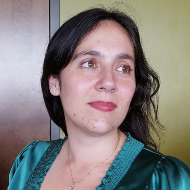In a recent post, I wrote about how listening to my students inspired my research into the language of science. In my early research, I found that some science vocabulary hinders students when they learn new science concepts. I wanted to find out what other elements of language have critical impacts on science learning.
While working at the University of Iowa, I found many unexpected factors that correlated strongly with student success. For example, one of the most significant language behaviors teachers engaged in was to repeat and rephrase what students said. This summarization of student speech had benefits beyond simply making sure the entire class heard what others students said (students almost universally speak too softly for the class to hear). What I found was that summarization of student speech itself had a positive effect on understanding.
Kind of funny, right? Why would repeating a student’s words back to them improve their science learning?
But then again, why wouldn’t it? Hearing from an authority figure that their words have worth and meaning can be a big deal to students, particularly younger students. People establish many of their basic perceptions about science when they are very young. Students develop feelings of competency well before they actually are competent in science. Also, as an added bonus, young kids still mostly think what adults say is important.
Teacher summarization of student speech is related to several other language behaviors. These include the presence of “free speech” in the classroom, where students didn’t need to raise their hands to talk and where multiple speakers engaged simultaneously in a discussion. In short, not only did teacher speech summarization validate students, it encouraged them to talk more. Importantly, they didn’t just talk with their teachers, but also with their peers. Over time, I found that classrooms with high frequencies of teacher speech summarization tended to develop more student speech summarization, where students would repeat back to each other what their peers said. Again, people were validating each other. That sort of validation is really necessary to create dialog.
Dialog is essential to science. The whole process of scientific discovery and scientific consensus only occurs within a community of people willing to talk freely with each other to explore and critically evaluate ideas. Scientists in the real world don’t work in a vacuum. Collaboration and communication are essential science skills. These important skills can and should be practiced in the science classroom, but they aren’t always. Getting students to engage in dialog in the classroom can be challenging, because so many students are used to sitting quietly in the classroom. That’s the kind of behavior that is rewarded, while talking in class only gets you in trouble. Additionally, students may not be comfortable raising their hands or asking questions because they don’t want to look foolish in front of their peers.
So what’s the takeaway from all this? The next time you’re interested in talking science with someone, think of how you can grow dialog. Make an active effort to validate what they’re saying. Build a human connection that encourages them to speak. Some people get the mistaken idea that science is a field of absolute truths or aggressive debate. As scientists, we are able to move forward and learn more about the universe when we engage in dialog; when we both construct and critique ideas in a community context.
Science education researchers have found that dialog-rich environments are good for all kinds of students. Students that disproportionally do not go into STEM—students of color, girls, kids with special needs—show benefits from dialog. These students are more likely to stay interested in school, and more likely to succeed, in environments that are rich in dialog. If we can extend the principle of dialog into our daily lives as scientists, educators, and curious human beings, we could reach more people. For some of us, this might mean developing listening skills and encouraging other people to speak. And for many of us, it may involve using our voices when we’ve been socialized to be silent. In order to grow dialog about science, we have to start the conversation.

